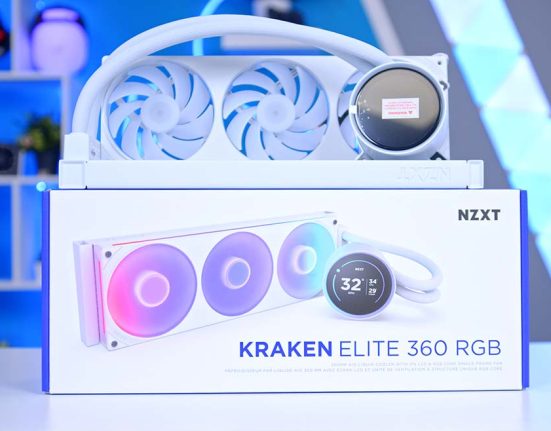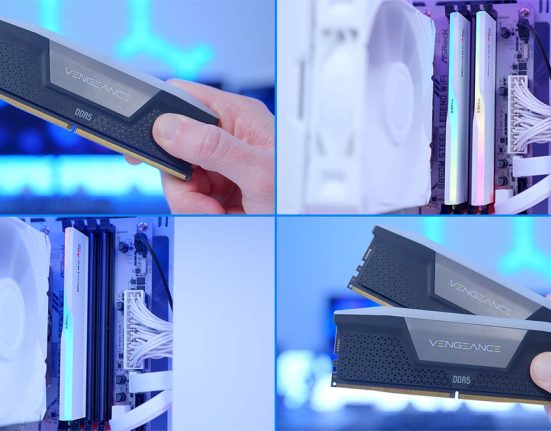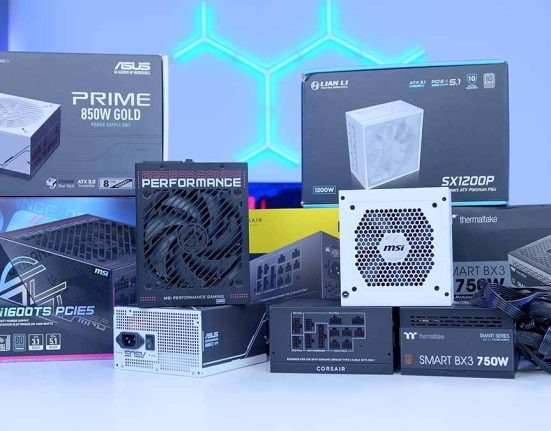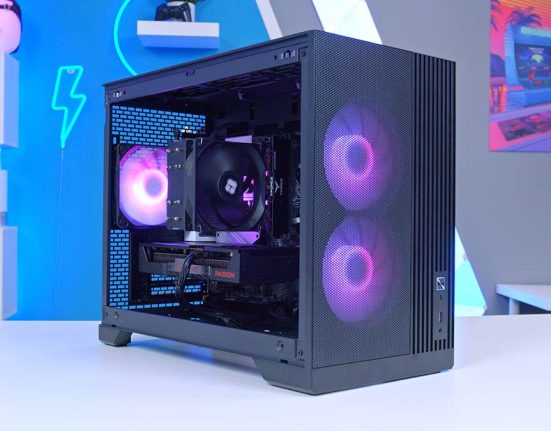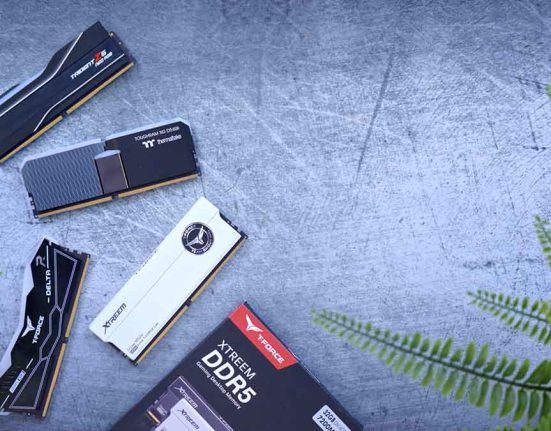Introduction
AMD’s Radeon 7000 graphics cards have seen a significant rise in the size of graphics cards physical dimensions. This raises concerns as to whether consumers will need a case upgrade for their new GPU, or whether you can get away with your current case choice. In this buyers guide, we’ll be rounding up the best cases to pair with AMD’s Radeon initial 7000 GPUs. We’ll be looking at a wide range of options from more budget oriented designs, all the way up to the top-end with the best features and aesthetics.
Without any further deliberation, here are the best PC cases to pair up with AMD’s GPUs, the Radeon RX 7900XTX & XT. All of the options we’ve picked support both graphics cards out of the box with plenty of clearance, and we’ve offered a range of cases for different budget types and sizes.
Suggested Article: AMD Radeon RX 7900 XTX Review
The Best Cases for the Radeon RX 7900 XTX & XT
1. MSI MPG Gungnir 110R

The MSI MPG Gungnir 110R is ideal for those that are looking for a smaller compact design with some extra spice added in. This case comes with four pre-installed ARGB fans, giving consumers plenty of customisation options right out of the gate. All of which can be done within MSI’s MysticLight software, and synced up with any other MSI products.
The Gungnir 110R is an excellent looking case that provides some extra flair to your build with the varying colour options. The front IO sports a number of USB and audio ports, providing you easy access to charge devices or perhaps plug in a mouse and keyboard.
The MPG Gungnir is also one of the few fans to come with four pre-installed fans straight out of the box. These fans are also ARGB models, adding some flair to your PC build.


Although the MPG Gungnir case supports some of the 7900 XTX and XT variants, this case won’t have enough clearance for some of the larger AIB models.
This is one of the smaller cases that we’ve reviewed, and although it is ideal for a compact build, larger radiators and fans may clash with either of these graphics cards due to their size.
2. Corsair 4000D Airflow

If there’s one thing Corsair knows how to do well, it is making consistently good cases that provide a fine balance of form and function. The 4000D airflow offers an excellent design, perfect for those that want to optimise thermals, and not make any sacrifices when it comes to cooling.
The 4000D airflow has a wide range of compatibility with motherboards and radiators, allowing you to customise your build according to your use-case. This case would pair very nicely with other Corsair products, as they can easily be synced up in Corsair’s industry leading iCUE software, providing a range of different lighting effects and colour options.
The increased clearance of the 4000D Airflow allows consumers to install larger components. Consumers have more room for large radiators up to 360mm, alongside plenty of storage space, and space for vertical GPU mounting.
Much like the MPG Gungnir, the 4000D Airflow is a smaller design, and won’t have enough clearance to support all of the larger AIB models on the market.
The most disappointing part of the 4000D Airflow, is that despite being a model dedicated to thermals, it only comes with two 120mm fans. This means that consumers will likely need to purchase extra fans to optimise thermals.


3. NZXT H7 Flow

NZXT’s H7 series of cases offered a refreshing redesign that NZXT has needed for quite some time. The H7 Flow in particular showcases NZXT’s signature minimalist look, but with more function, as the front of the case features a mesh design which provides plenty of airflow throughout your build.
The H7 Flow is perfect for consumers that want a minimalist and sleek chassis to house their components. This case is very easy to build in, making it ideal for entry-level builders. Also, there’s a huge amount of GPU clearance, allowing you to install a large graphics card without hindering airflow.
Much like the 4000D, the H7 Flow is a little bit weaker of the pre-installed fans front. Despite being an airflow model consumers only get two fans, so you’ll want to buy more for a stronger push/pull configuration.
We’ve started to see the resurgence of more interesting and colourful designs from cases like the Fractal Pop Colour, or the HYTE Y60, but NZXT doesn’t seem to be following suit. If you’re looking for a fancier coloured case, you might want to pick a different manufacturer.


4. Lian Li O11D Mini

Lian Li’s O11D Mini is one of the best cases we’ve had in the office when it comes to versatility and usability features. The O11D Mini is a compact design that gives consumers a plethora of options when it comes to build configurations. This case has two tempered glass panels which give you a wide window into your system, allowing you to showcase your components in all their glory.
The O11D Mini also has a huge amount of support for custom liquid cooling, including a modular pump stand which can be installed in a variety of ways for different types of loops.
This case is ideal for consumers that want a smaller and compact design, that allows them to experiment with a myriad of component configurations to build a bespoke system.
Although the O11D Mini is mostly easy to build in, this case definitely isn’t geared towards beginners. If you’re unfamiliar with PC building, the number of extra pieces and non-traditional design elements can definitely be confusing.
Many of Lian Li’s more recent cases offer RGB models that allow consumers to spice up their build. However, the Mini variant of the O11D doesn’t feature any RGB fans or strips, so you’ll have to spend a bit extra for some bonus flair.


5. Thermaltake Core P3 TG Pro

Thermaltake’s Core P3 TG Pro is one of the coolest looking cases we’ve ever seen, sporting a unique ‘test-bench’ style design. This is the kind of case that you dream about buying when you’re younger, and I was pretty giddy when this came into the office. The open design brings an entirely new look to any PC build, and as an extra feature, this case can also be wall-mounted for those that want to maximise their desk space.
Alongside the awesome aesthetic that comes with this case, the Core P3 TG Pro is extremely modular, providing vast support for liquid cooling loops and other large components like E-ATX motherboard and large graphics cards.
As you can probably imagine, with all of the various features and design elements, this case would be rather expensive, and you’d be correct. This is one of the pricier options that we’ve taken a look at, and will be off-putting for some consumers.
Although the open-style design gets bonus points for flair, this will be a bit of a disadvantage as well. This case is definitely a dust magnet, and you may have to clean it out regularly to ensure thermals are normal and your fans perform optimally.


How Big Are the Radeon 7000 GPUs?
It’s time to address the elephant in the room, which concerns the size of AMD GPUs. Unlike Nvidia’s RTX 4000 cards, AMD has managed to keep the size of the new cards mostly the same as the previous generation. This does mean that the cards are quite big, but not obscenely large compared to Nvidia’s 40 series entrants.

AMD’s 7900XTX reference card sits at 287mm for its total length, which is around 2.5 slots. The 7900XT is slightly smaller, sitting at a length of 276mm. Compared to Nvidia’s 4090 and 4080 Founders Edition GPUs, this is great to see, as Nvidia’s Founders cards sit at 304mm out of the gate. This also means for AMD that the AIB cards should be smaller in comparison opening up more options for cases. The ever-increasing size of graphics cards is a worrying factor, but its great to see that AMD haven’t pushed out a bulk of consumers looking for a GPU upgrade by keeping the length at a somewhat reasonable level.
How We Picked the Best Cases for the RX 7900 XTX and XT
Picking out the best cases for both of these GPUs was a relatively simple process. Although the Radeon 7000 SKUs aren’t quite the same size that we’ve seen from Nvidia’s most recent range, but they’re still pretty big cards regardless. This means that we can rule out a a number of options that won’t have enough clearance to support our chosen GPUs.
In order to find cases with plenty of clearance, we’ve ruled a number of options that don’t offer a minimum of at least 50mm of clearance. This ensure consumers will be able to build a PC that has plenty of airflow, with space for other components such as radiators, or fans. You can read full reviews of some of the cases that we’ve reviewed in more depth below!
| Brand | Review Article |
|---|---|
| NZXT | NZXT H7 Flow Review – The Best High Airflow Case Yet?! |
| Lian Li | Lian Li Lancool III Case Review – The Best Mesh PC Case? |
| HYTE | HYTE Y60 Review – The Game-Changer Case |
Frequently Asked Questions
Should I Be Worried About My Motherboard Size?
When it comes to cases, you should always consider the size of your motherboard before picking out a particular chassis. All manufacturers will note which motherboards they support, and you should check there before deciding on a case, this way you won’t be faced with any incompatibility issues.
How Much Clearance Should I Have?
As a general rule of thumb we recommend around 50-100mm of clearance as a minimum beyond your GPU length. This ensures you have enough airflow room, and space for other components such as radiators or fans situated around your case.
What Power Supply Do I Need for the 7900XTX and XT ?
On AMD’s website, they recommend 750W for the 7900 XT, and 800W for the 7900 XTX. We always urge consumers to go for around 100W higher than the minimum amount to make sure they have room for upgrades, and redundancy.


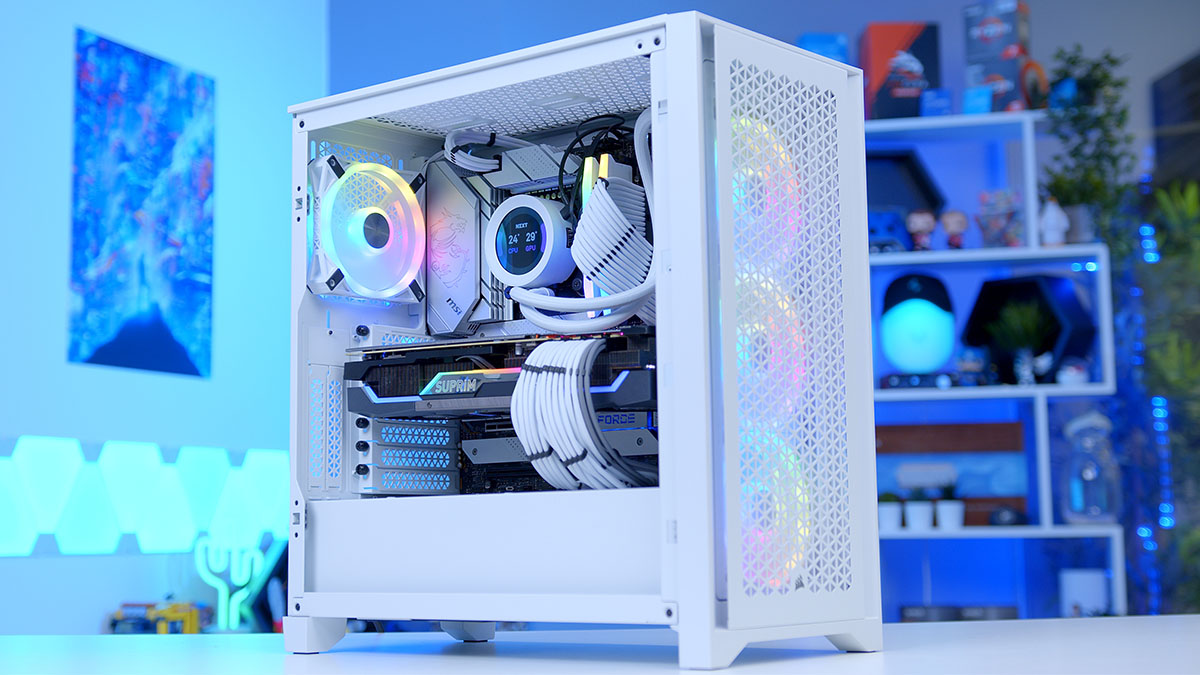
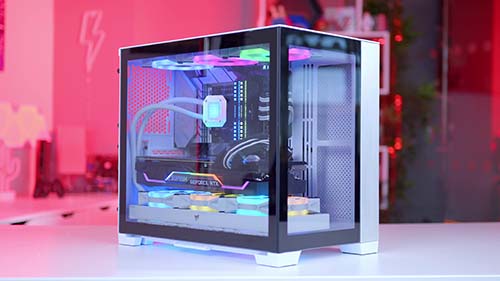




![FI_[DM89] Phanteks Evolv + AORUS 5090 9850X3D Gallery (8)](https://geekawhat.com/wp-content/uploads/2026/02/FI_DM89-Phanteks-Evolv-AORUS-5090-9850X3D-Gallery-8-551x431.jpg)
